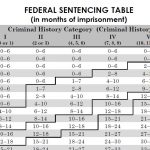Holmes Youthful Training Act
Young adult defendants without a serious criminal history might be eligible for dismissal of charges after successfully completing probation. A skilled, experienced lawyer gives a youthful defendant their best chance.

A Young Adult Might Be Eligible for an HYTA Dismissal of Charges
HYTA is an acronym for the Holmes Youthful Trainee Act. The statute allows youthful offenders and young adults to keep their records clean if they face felony or misdemeanor charges. We’ve all heard about people applying for jobs, school, public benefits, fighting over custody, having something they did in the past surface, and keeping them from moving forward. The Holmes Youthful Trainee Act (HYTA) helps young people keep a youthful indiscretion off their criminal history, so they don’t have to worry about a lapse of judgment ruining their future. Dismissal of charges under the HYTA is not guaranteed, and persuading a judge to grant youthful offender status can be challenging. If a defendant or their lawyer fails to convince the judge they will remain law-abiding, the judge will deny the request to have the charge taken under advisement.
HYTA Basic Outline of Requirements
HYTA is available to someone who commits a crime after their 18th birthday but before they are 26. Most charges are eligible for under advisement status under HYTA; however, “capital offenses” (like murder), some Criminal Sexual Conduct charges, major controlled substance charges (drug delivery), and traffic offenses (like drunk driving) are excluded. For youthful offenders between the ages of 21 and 26, HYTA may still be available if the prosecutor consents. It takes an experienced and persuasive defense lawyer to persuade many prosecutors to allow a defendant to have this opportunity and get an HYTA dismissal of charges.
Is HYTA Dismissal of Charges a program?
No, HYTA is not a program. If a youthful criminal defendant in Michigan is granted HYTA status for a misdemeanor or felony, the judge will place that defendant on a term of probation under advisement. Probation can be as long as three (3) years. Most of the time, the probation terms include not picking up any more charges, drug or alcohol testing, community service, and rehabilitative programs such as AA or NA. If the defendant successfully completes probation under HYTA, they earn a dismissal of all charges and will have no public record of a conviction.
HYTA and Probation Violations
If a defendant faces an HYTA probation violation, the judge does not automatically revoke HYTA and enter a conviction. Every case is different, and whether the judge revokes HYTA for a probation violation is within the sentencing judge’s discretion. In these circumstances, having a top HYTA defense attorney may save HYTA for a violating defendant. If the attorney persuades the sentencing judge to maintain their client’s HYTA status, the defendant will still have the ability to earn a dismissal of charges.

Is HYTA easy to get if a defendant qualifies?
Many judges are reluctant to give a defendant HYTA status so the defendant can get a dismissal of their charges. Even though HYTA is available for most misdemeanor and felony charges, judges are frequently hesitant to grant that status to those charged with felony crimes. Preventing a criminal conviction from appearing on a criminal history has to be a top priority of a defense lawyer. The attorney must do everything possible to ensure the judge agrees to HYTA. Because the consequences to a youthful person having to go forward in life saddled with a criminal history are so severe, only experienced criminal defense attorneys should handle these matters. Hiring a retained attorney is expensive; getting a second chance at a crime-free life is priceless.
What if HYTA probation is successfully completed?
Once a defendant completes their HYTA probation, the judge orders the dismissal of all charges. Any public record of the case gets sealed. After probation discharge, there is no public record of conviction. No one will know from a search of public criminal history that there was a charge, plea, or sentence.
Can HYTA be granted more than once?
HYTA is usually a one-time thing; however, there is no limitation to the number of times a defendant can be granted HYTA and get a dismissal of charges; it is at the judge’s discretion. Most judges will be reluctant to give HYTA status more than one time. If a defendant is charged with a second or subsequent offense and requests HYTA, their criminal defense lawyer better be prepared to present a compelling reason.

Who can help get HYTA for a defendant?
The Michigan Criminal Defense Attorneys with LEWIS & DICKSTEIN, P.L.L.C. are passionate about helping youthful offenders get a second chance at living conviction-free lives. We have dedicated countless hours to developing strategies and methods for maximizing a youthful client’s chances of receiving HYTA status and earning a dismissal of charges. We will do whatever is necessary to get a client’s plea taken under advisement and get the case dismissed. We are not afraid to win!
Call us today at (248) 263-6800 for a free consultation or complete an online Request for Assistance Form. We will contact you promptly and find a way to help you.
We will find a way to help you.
We Are Not Afraid to Win!
HYTA Dismissal of All Charges
762.11 Criminal offense by individual between ages 17 and 24 before October 1, 2021 and 18 and 26 beginning October 1, 2021; assignment to status of youthful trainee; consent of prosecuting attorney; exceptions; employment or school attendance; electronic monitoring; definitions.
Sec. 11.
(1) Until October 1, 2021 and except as provided in subsections (3) and (4), if an individual pleads guilty to a criminal offense, committed on or after the individual’s seventeenth birthday but before their twenty-fourth birthday, the court of record having jurisdiction of the criminal offense may, without entering a judgment of conviction and with the consent of that individual, consider and assign that individual to the status of youthful trainee. If the offense was committed on or after the individual’s twenty-first birthday but before his or her twenty-fourth birthday, the individual must not be assigned to youthful trainee status without the prosecuting attorney’s consent.
(2) Beginning October 1, 2021, except as provided in subsections (3) and (4), if an individual pleads guilty to a criminal offense, committed on or after the individual’s eighteenth birthday but before his or her twenty-sixth birthday, the court of record having jurisdiction of the criminal offense may, without entering a judgment of conviction and with the consent of that individual, consider and assign that individual to the status of youthful trainee. If the offense was committed on or after the individual’s twenty-first birthday but before his or her twenty-sixth birthday, the individual must not be assigned to youthful trainee status without the prosecuting attorney’s consent. If a defendant is charged with an offense listed under subsection (3) and the defendant pleads guilty to any other offense or will be eligible for the status of youthful trainee under subsection (4), the prosecutor shall consult with the victim regarding the applicability of this section.
(3) Subsections (1) and (2) do not apply to any of the following:
(a) A felony for which the maximum penalty is imprisonment for life.
(b) A major controlled substance offense.
(c) A traffic offense.
(d) A violation, attempted violation, or conspiracy to violate section 520b, 520c, 520d, or 520e of the Michigan penal code, 1931 PA 328, MCL 750.520b, 750.520c, 750.520d, and 750.520e, other than section 520d(1)(a) or 520e(1)(a) of the Michigan penal code, 1931 PA 328, MCL 750.520d and 750.520e.
(e) A violation, attempted violation, or conspiracy to violate section 520g of the Michigan penal code, 1931 PA 328, MCL 750.520g, with the intent to commit a violation of section 520b, 520c, 520d, or 520e of the Michigan penal code, 1931 PA 328, MCL 750.520b, 750.520c, 750.520d, and 750.520e, other than section 520d(1)(a) or 520e(1)(a) of the Michigan penal code, 1931 PA 328, MCL 750.520d and 750.520e.
(4) The court shall not assign an individual to the status of youthful trainee if any of the following apply:
(a) The individual was previously convicted of or adjudicated for a listed offense for which registration is required under the sex offenders registration act, 1994 PA 295, MCL 28.721 to 28.736.
(b) If the individual is charged with a listed offense for which registration is required under the sex offenders registration act, 1994 PA 295, MCL 28.721 to 28.736, the individual fails to carry the burden of proving by clear and convincing evidence that he or she is not likely to engage in further listed offenses.
(c) The court determines that the offense involved any of the following:
(i) A factor set forth in section 520b(1)(a) to (h) of the Michigan penal code, 1931 PA 328, MCL 750.520b.
(ii) A factor set forth in section 520c(1)(a) to (l) of the Michigan penal code, 1931 PA 328, MCL 750.520c.
(iii) A factor set forth in section 520d(1)(b) to (f) of the Michigan penal code, 1931 PA 328, MCL 750.520d.
(iv) A factor set forth in section 520e(1)(b) to (g) of the Michigan penal code, 1931 PA 328, MCL 750.520e.
(5) If the court assigns an individual to the status of youthful trainee under this section, the court may require the individual to maintain employment or to attend a high school, high school equivalency program, community college, college, university, or trade school. If the individual is not employed or attending a high school, community college, college, university, or trade school, the individual may be required to actively seek employment or entry into a high school, high school equivalency program, community college, college, university, or trade school.
(6) If the offense for which the individual is assigned to the status of youthful trainee status was committed on or after the individual’s twenty-first birthday, the individual may, in addition to the other requirements of this section, be subject to electronic monitoring during their probationary term as provided under section 3 of chapter XI.
(7) As used in this section:
(a) “Listed offense” means that term as defined in section 2 of the sex offenders registration act, 1994 PA 295, MCL 28.722.
(b) “Traffic offense” means a violation of the Michigan vehicle code, 1949 PA 300, MCL 257.1 to 257.923, or a violation of a local ordinance substantially corresponding to that act, that involves the operation of a vehicle and, at the time of the violation, is a felony or a misdemeanor.












